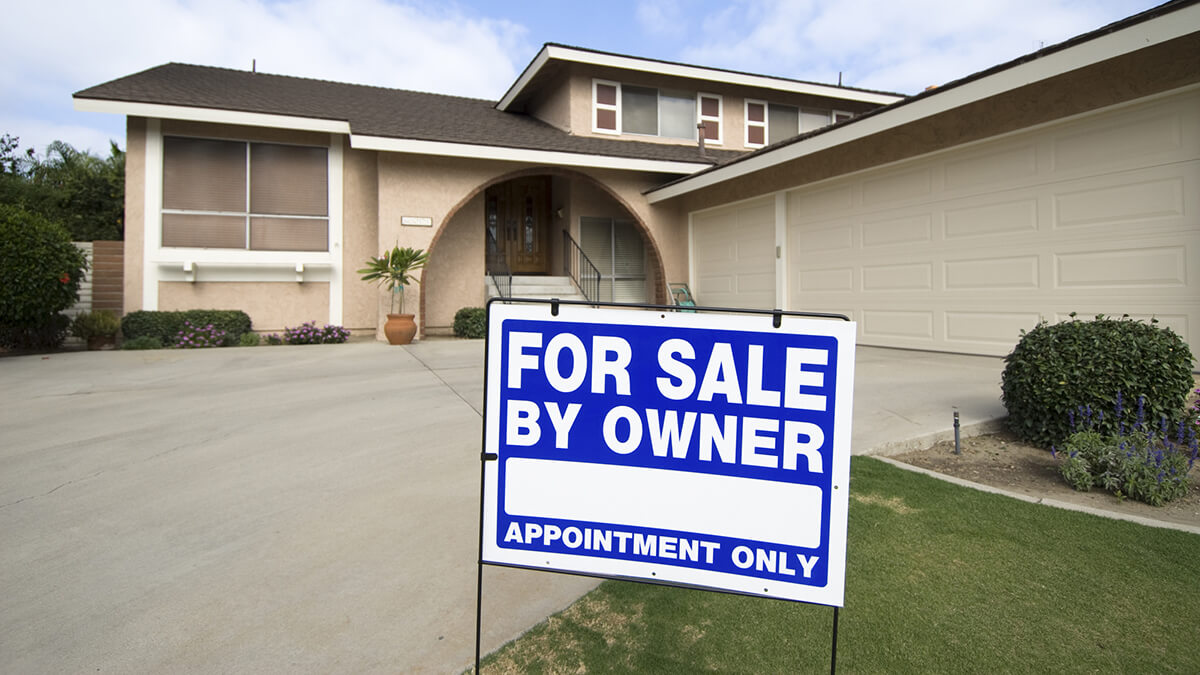Buying or selling a home is a significant transaction, often being one of the biggest decisions people make in their lives. Unfortunately, it’s also become a target for scammers looking to exploit inexperienced buyers and sellers.
In this article, we’ll discuss how to recognize potential scams, some common warning signs, and how to safeguard your investment.
For a guaranteed, reliable home sale, iBuyer.com can provide you with multiple cash offers safely and securely.
Real Estate Scams
Compare Cash Offers from Top Home Buyers. Delivered by Your Local iBuyer Certified Specialist.
One Expert, Multiple Offers, No Obligation.
Fake real estate buyers
Signs of fake real estate buyers include overly eager interest, willingness to purchase sight unseen, requests for high upfront costs or fees, high-pressure tactics to close quickly, and demands for unconventional payment methods like wire transfers or cryptocurrency. Always verify the buyer’s credentials and avoid transactions with suspicious or unconventional conditions.
What are real estate scams?
Some people try to trick other people who are buying or selling property. They do this by lying about things like how much money the property is worth or what it will cost to fix it up.
These people are called scammers, and they can steal a lot of money if you’re not careful. According to recent estimates, approximately 5% of all real estate transactions involve scammers in some way.
So it’s important for both buyers and sellers to be very careful when they’re doing any kind of real estate transaction. By identifying a real scam, you protect yourself from falling victim to a scam.
So, familiarize yourself with the following property sales warning signs.
1. Unusual payment requests
Some people may try to scam you when you buy a house. They may ask you to do things that are not normal, like wiring money to an account that you do not know about or giving them a lot of money before you sign any papers.
When you are buying a house, only use traditional methods of payment, like a check from a bank or credit card. Do not respond to requests for cashier’s checks, money orders, or overseas wire transfers.
2. Unrealistic promises
If someone is telling you that you will make a lot of money from investing in a property or that it is worth more than it seems, they might be trying to trick you.
Always find out more information and look into any offer carefully before making a decision.
3. Lack of documentation
If someone is trying to sell you a house and they cannot give you the right paperwork, be careful. This person might be trying to scam you. But how do you know if a realtor is scamming you?
A good real estate agent will answer any questions you have and give you all the information about a property before making an offer. If you think someone is scamming you, contact the police right away.
How to report real estate scams
If you believe that someone has scammed you in a real estate deal, there are a few things you can do. You can contact the police and tell them what happened.
You can also file a complaint with the Federal Trade Commission or the state Attorney General’s office. If you lost money because of the scam, you might be able to sue the person in civil court.
Finally, tell your state’s Real Estate Commission or licensing board about what happened so they can look into it and see if any laws were broken.
It is essential to be careful and not get caught up in a property scam when you are buying or selling a home. There are some people who try to trick others by doing things like pretending to be someone they are not.
If you are careful and do your research, you can avoid being tricked by one of these scams.
Types of real estate scams
Real estate scams come in many forms and can target both buyers and sellers. Common types of fraud include inflated property values, hidden fees or costs, and fraudulent contracts.
Additionally, scammers may also use fake documents to mislead potential buyers or misrepresent their experience in the real estate market.
1. Licensing requirements
It is important to make sure that everyone involved in a real estate transaction is qualified and licensed by the state. This helps protect buyers and sellers from fraud or misrepresentation.
Before engaging in any real estate transaction, make sure to ask the other party for their license number and verify that it is valid with your state’s licensing board.
2. Escrow wire fraud
One of the most common real estate scams involves fraudulent requests for wire transfers. Before engaging in a real estate transaction, it’s important to understand how escrow accounts and wire transfers work.
Also, you must ensure that any funds related to the sale are sent directly to an authorized escrow account.
Never respond to requests for cashier’s checks, money orders, or overseas wire transfers, as they could be part of a scam.
3. Loan flipping
Loan flipping is another common real estate scam, in which unscrupulous lenders target potential buyers by offering to refinance their mortgages at increasingly higher interest rates.
This can lead to borrowers taking on more debt than they can actually afford and eventually defaulting on the loan.
To protect yourself from this type of fraud, make sure you understand all of the terms and conditions of any loan offer before signing on the dotted line.
4. Foreclosure relief
Another type of real estate scam involves individuals or companies that offer foreclosure relief services. These services may promise to help homeowners avoid foreclosure by renegotiating the terms of their loans with lenders.
But often they are simply a way for scammers to collect hefty upfront fees without actually providing any assistance.
To protect yourself from this type of fraud, make sure to research any company offering foreclosure relief services before signing on with them.
Additionally, never give out your personal information or agree to send money without first verifying their credentials and researching the organization’s reputation with the Better Business Bureau.
5. Fake rentals
Another type of real estate scam involves individuals posing as landlords or property owners in order to collect rental deposits and other fees without actually renting out the property.
To avoid falling victim to this type of fraud, make sure you thoroughly research any potential landlord and verify their identity before sending money or signing a lease agreement.
Additionally, be wary of listings that require payments made by wire transfer or cashier’s check as these are often warning signs that the listing is not legitimate.
6. We buy homes
We buy homes scams involve individuals or companies that make unsolicited offers to purchase a property at an inflated price. This can be attractive to homeowners looking for a quick sale.
But the offer is often too good to be true and may eventually result in homeowners losing their money without actually selling their homes.
To protect yourself from this type of fraud, make sure you thoroughly research any company making such an offer and verify their credentials with the Better Business Bureau.
Additionally, it’s important to obtain multiple appraisals before agreeing to any sale, so that you have an accurate idea of your property’s fair market value.
7. Forged deeds
Forged deed scams involve individuals or companies that claim to own the property in question, but do not actually have a legal right to sell it. You need to be careful with this.
To protect yourself from this type of real estate fraud, make sure you always verify who owns the title to any property before purchasing it.
Additionally, be wary of any offers that require payments made in cash or via wire transfer, as these are often signs that something is amiss.
8. Unsolicited off-market sales
Unsolicited off-market sales involve individuals or companies that attempt to sell properties directly to buyers without ever listing the properties on the open market.
This can be attractive for buyers looking for a great deal, but it often results in them being taken advantage of by unscrupulous sellers who are looking to make a quick profit.
To protect yourself from this type of fraud, make sure you always research any potential property purchase and verify its ownership with the local land records office before making an offer.
Additionally, be wary of any offers made via email or phone that don’t include a physical address as these may be signs of a scam.
What to do if I suspect being scammed?
If you believe that you have been the victim of a real estate scam, it is important to contact your local law enforcement authorities. Additionally, you should file a complaint with the FTC.
The Federal Trade Commission (FTC) can be found at ftc.gov/complaint. The FTC provides resources and tips for fraud prevention as well as ways to report any type of fraud or scams.
Furthermore, if you are concerned about identity theft, visit identitytheft.gov to learn more about protecting yourself from this type of crime.
Find a buyer you can trust
Finally, it’s important to do your research and make sure you find a reputable buyer or agent to work with when making real estate transactions. Ask friends and family for referrals.
Also, check online reviews and verify credentials before signing on the dotted line. Doing so will help ensure that you are working with someone you can trust and that you won’t become a victim of real estate fraud.
iBuyer.com helps you to find a buyer that will not scam you; if you’re looking for a quick sale contact us now.




